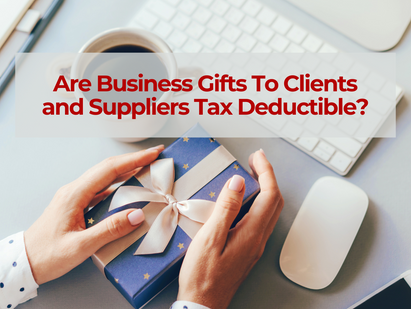Do I need to complete a tax return if my new business is making a loss?
- Caroline.

- Oct 28, 2024
- 3 min read

If you've recently started your business (congratulations!), you might be a bit confused on if you actually need to complete a self-assessment, especially if you haven't had any income yet! However, even if you've not received any income or are running at a loss, still choosing to file a tax return could be save you tax in the long run. Yes, really! Keep reading to find out why.
What are business losses?
Before we jump into why you should be filing a tax return, I'll quickly explain what business losses are.
It's simply when your expenses in the tax year are higher than the income coming in. For example, if your business income was £500 but your expenses were £2000, you would have a loss of £1500.
If you find yourself with a loss, don't worry! It's very common, especially in the first couple of years of starting a business and is normally a result of high initial start up costs combined with low (or no) income from needing to grow a customer base from scratch. While it may seem a bit daunting recording these losses in your tax return, it is vital for understanding and keeping track of the true financial picture of your business.
So do I need to complete a self-assessment tax return?
HMRC requires all self-employed people with INCOME (not profits!*) over £1000 to complete a self-assessment for the tax year, however if your income was below this there could be a benefit to you completing one anyway.
What are the benefits in completing a tax return?
Firstly, filing a tax return, even with losses, builds a good habit for your future tax returns and also helps establish a clear business timeline, which can sometimes be beneficial when applying for things like loans, certain benefits or a even a mortgage.
Filing a tax return can also help you review your figures and help you identify potential problems and and can offer insight into your business finances (like where you are spending the money). This ideally should be done at regular intervals, but at the very least, by completing your tax return it forces you to review your business at least once a year.
Don't forget, as previously mentioned, you could also be legally obligated to file one. If your income is over £1000 HMRC require a self-assessment to be filed, even if you are making a loss. By not doing so you could end up with fines and penalties from HMRC for non-compliance.
Now this is the key part!
While you might not have made a profit, and therefore won't owe any tax this year, filing a return allows you to potentially claim a future tax benefit. This is because any losses incurred in the first few years of your business can be "carried forward" and used to offset future profits, potentially reducing your tax liability in profitable years.
It is worth noting though, that any losses carried forward must be used as soon as possible, (so in the first tax year you make a profit, regardless of if it's above your personal allowance or not). If it's not all used in one tax year, any balance is carried forward to the next tax year in which there is a profit.
Don't Panic!
Starting a business is exciting, but it's important to remember the business finances are part of the process. By filing your tax return, even if you're making a loss, you're laying the foundation for good habits and future success, and doing it early means you avoid any last minute stress and ensures you don't miss any deadlines.
Don't panic though! Filing your self assessment doesn't need to be overwhelming and HMRC have some step-by step information to help you on your way towards successful record keeping and compliance.
If you have are unsure about your tax obligations or if you want someone to help file your self-assessment, don't hesitate to book a discovery call with Mona Accountancy Services!
*This is a VERY common mistake people make! This needs to be based on income/sales/invoices/revenue or any money coming in BEFORE deducting any costs/expenses/bills or any money going out.
.png)



Comments